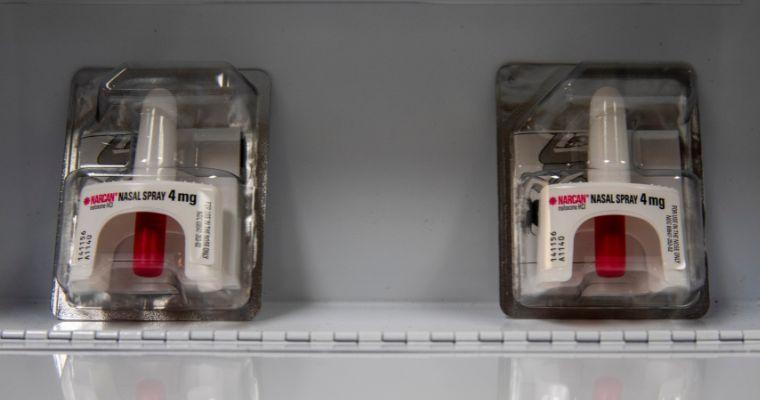Cool Courses: CJUS 420 – Drugs and Crime: Policies and Politics on Getting High

When Dr. David Khey, professor and head of the Department of Criminal Justice, joined the University of Louisiana at Lafayette in 2015, he noticed a gap in the University’s criminal justice curriculum: there was no course specifically focused on drug-related issues.
So, he developed CJUS 420 – Drugs and Crime: Policies and Politics on Getting High. While some may look at the course’s name and number and chuckle at the reference to 4/20, an informal holiday celebrated by cannabis enthusiasts, behind that cheeky reference is a deep history of humanity and its relationship with drugs.
“As humans, we’ve always had substances at our fingertips that change our states of reality,” says Dr. Khey. “We as a species are curious about these kinds of medicines or plants or creations that can cause an altered state.”
Drugs All Around Us
Growing up in South Florida in the 1980s and 1990s, Dr. Khey witnessed the relationship between humans and substances firsthand.
During that time, Miami was a hotspot for drug-related crime, much of which has since been chronicled in well-known documentaries like “Cocaine Cowboys.” In response, government-funded programs like D.A.R.E. — Drug Abuse Resistance Education — sought to teach children about the dangers of drugs.
“As a kid, I saw a culture that was infatuated with music, movies, and television. Sprinkled in there were government-built ad campaigns against drug use that were targeted toward my age group,” he recalls. “And beyond that, my family was impacted by relatives who were chronically going into rehab and having issues with cocaine and alcohol.”
When Dr. Khey reached adulthood, he chose to study criminal justice so he could better understand these issues that impacted his childhood. He earned his bachelor’s degree in criminology, two master’s degrees in sociology and pharmaceutical sciences, and a Ph.D. in criminology, law, and society.
One of his top research agendas? Drugs.
“It caught my curiosity to start researching these kinds of patterns of drug use in humanity,” Dr. Khey says. “It just so happened that my time in school was also the heyday of researchers pushing out some very interesting things, and I got to read and add to these things.”
Drug [Myth] Busts
Dr. Khey’s past research endeavors have focused on drug treatment trends, synthetic and novel drugs, and drug policy.
Currently, he’s evaluating the national D.A.R.E. curriculum to determine how evidence-based and effective it is. D.A.R.E., which dates to the 1980s, received criticism from scholars in its early years for its aggressive approach and poor outcomes.
When students take CJUS 420, they can expect to evaluate these kinds of drug-related topics that Dr. Khey and other scholars in the field study every day.
“Really, CJUS 420 is all about debunking myths,” Dr. Khey says. “We make sure that students understand that for every legal substance out there, such as Adderall, there’s an illegal cousin, like methamphetamine, that has slightly different effects and is used in different contexts for different purposes.”
Dr. Khey describes it like a Venn diagram: there are drugs that are used in a medicinal sense and drugs that are used in a recreational sense. The chemical difference between them is small, but the difference in how society responds to them is much larger.
And sometimes, there’s no clear explanation for the difference in societal response.
“If you look at, for example, the alcohol industry, we have a lot of freedom in terms of potency or in terms of how people take alcohol into their system,” Dr. Khey says. “Do we regulate it? No. Because it’s an established industry that makes a whole bunch of money in taxes. Yet alcohol is the number one contributor as a drug to violence relative to all other substances out there.”
“For every legal substance we turn a blind eye to, we have an illegal sister that we stamp down on and put people in prison or jails for.”
Throughout CJUS 420, students study a variety of drugs, gaining an understanding of how these drugs work and how their treatment in society came to be. The goal is to leave the course prepared to address drug usage in a way that maximizes societal benefit.
“We’re always going to have relationships with drugs and medicine,” Dr. Khey says. “We want to prevent violent behavior and look at how we can live as a society knowing these relationships will always exist."
Take courses like CJUS 420 – Drugs and Crime: Policies and Politics on Getting High from a leading R1 University. Request information today to learn more about the University of Louisiana at Lafayette’s online bachelor’s in criminal justice program.


